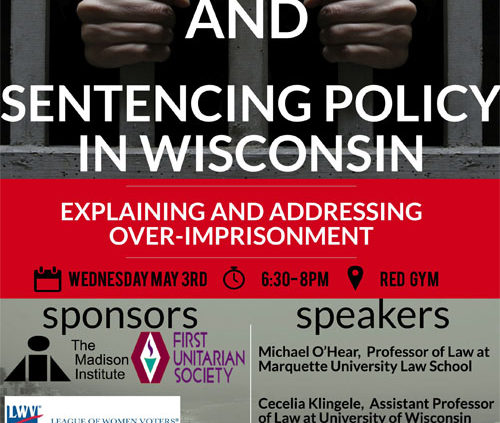Dying to Live Hunger Strikers Kept on the Brink of Death by Retaliatory DOC
Contact: Jason Geils IWOC, 414-350-9585, argentum111@me.com
Interview contact: Chance Zombor, 262-844-3703, chance.zombor@gmail.com
Dying to Live Hunger Strikers Kept on the Brink of Death by Retaliatory DOC
Waupun WI- According to a letter from hunger striker LaRon McKinley, the Dying to Live hunger strike against solitary confinement at Waupun Correctional Institution (WCI) has become a serious health crisis after seventy-six days.
On August 15, the Wisconsin Department of Corrections (WI DOC) decided to suspend the force feeding they have subjected the prisoners to since June 17. They allowed McKinley and Cesar DeLeon, the two most committed hunger strikers, to go without food or water for 72 hours, until they were severely dehydrated. Then they tube fed them again on Thursday August 18.
“Presently, and for most of this week, we have been under retaliatory attack by our warden as a direct consequence of our political efforts… to force an end to prolonged Administrative Confinement,” the letter from McKinley reads.
On Saturday August 13, a coalition of prisoner supporters from across the state gathered in Waupun to protest DOC practices and show solidarity with the hunger strike. They were greeted by offensive gestures, threats and insults by local residents, some of whom likely work at the prison.
“We believe Warden Foster has changed the force feeding regimen in response to our protest, unfortunately, the changes are retaliatory: increasing the pain, harm and danger these men are experiencing in an effort to break their will,” says Chance Zombor, who led the march on August 13.
A sudden intake of calories by a starved and dehydrated person causes violent metabolic shifts, leading to a potentially fatal condition called refeeding syndrome. WI DOC has begun a regimen that is very likely to cause refeeding syndrome. According to wikipedia, “the shifting of electrolytes and fluid balance increases cardiac workload and heart rate. This can lead to acute heart failure. Oxygen consumption is also decreased which strains the respiratory system.”
When the United States Military was force-feeding suspected terrorists on hunger strike in Guantanamo Bay, they took care to first intravenously re-hydrate the starving people to prevent refeeding syndrome. In Waupun, the DOC only allows the prisoners to drink lead-polluted water from the 165 year old institution, which causes diarrhea and exacerbates their dehydration.
McKinley suspects the DOC is intentionally keeping them on the brink of death. According to his letter, after 42 hours without food or water—because they refused to drink Waupun’s polluted water, he and Cesar DeLeon, “were diagnosed as seriously dehydrated, and the tube feeding was then recommended, but this time they made us both go exactly 30 more hours, to exactly 72 hours each. Seventy Two hours without water is a well known and medically held time limit that would and is generally believed to kill most people.”
The hunger strikers believe Waupun staff will continue force feeding them every 72 hours in an effort to make the hunger strike as unbearable as possible. McKinley’s letter goes on to describe his body’s response, which mirrors the symptoms of refeeding syndrome: “due to the stress and ordeal that our bodies had gone through, they kind of reacted as if they had been poisoned when said fluids were eventually forced into the stomach.”
Outside supporters are demanding that the DOC allow LaRon McKinley and Cesar DeLeon to drink bottled water, and that Wisconsin meet the striker’s central demand: a one-year cap on any form of solitary confinement. They are asking people to contact Warden Foster, DOC Secretary Jon Litscher, and Governor Scott Walker. More information, including phone numbers and email addresses can be found at SolitaryTorture.blogspot.com.







